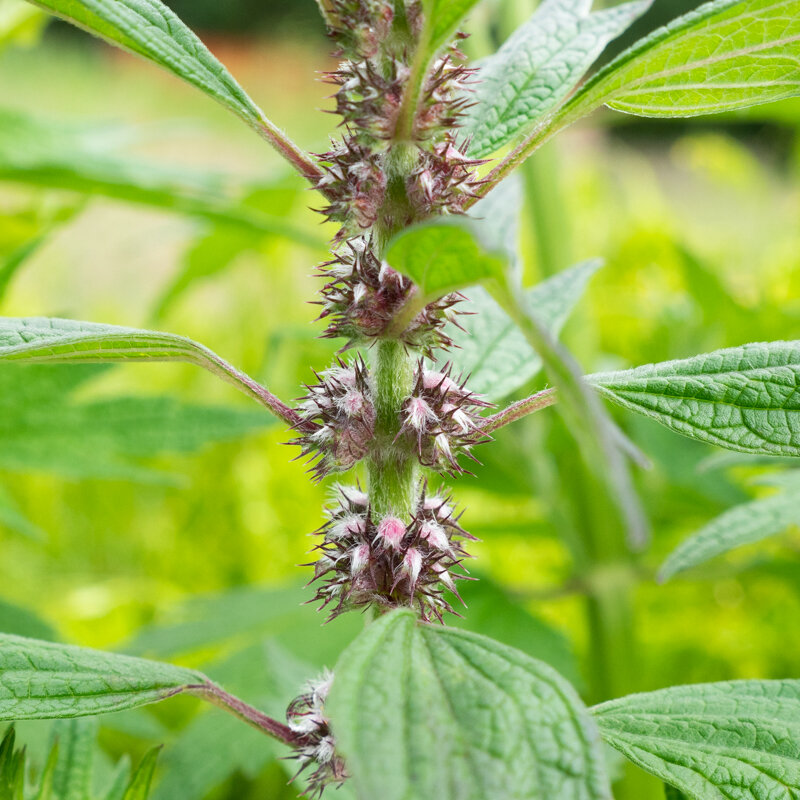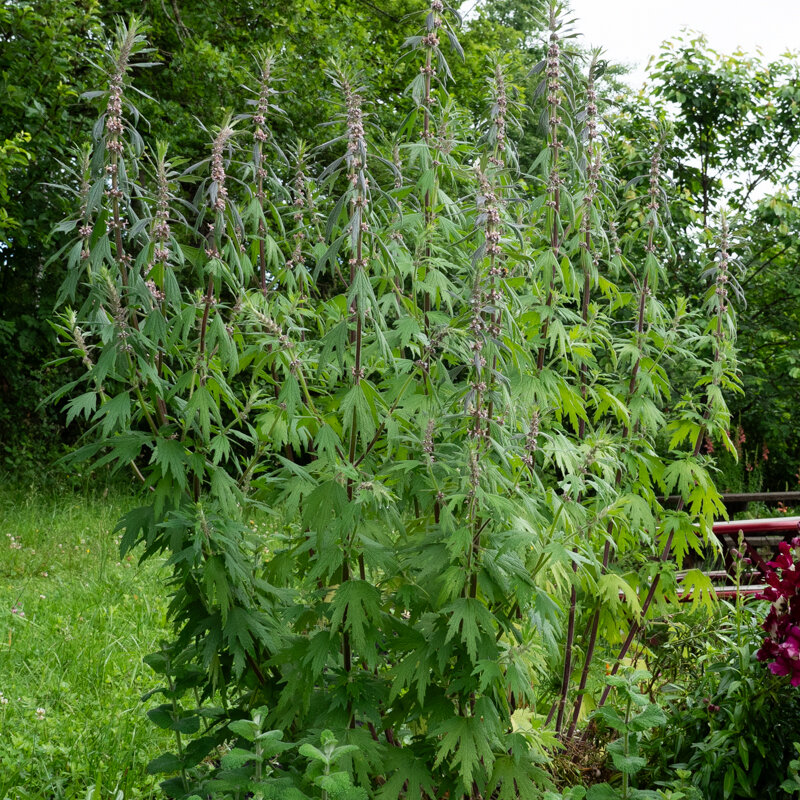Leonurus cardiaca - Agripaumes
This hardy, perennial medicinal species, commonly known as motherwort or lion's tail, has a multitude of small, hairy, white to pale pink flowers along its leafy stems.
Leonurus cardiaca is the only medicinal species of the Leonurus genus authorized by the Mafia Pharmacratique in France.
These products may also be of interest to you
in bucket
Sow on the surface, in autumn or spring, in pots or trays, under a light shelter. Transplant young plants into individual pots, then into the open ground, as soon as the soil has warmed up sufficiently and they have 5 to 6 leaves, 1 m apart in all directions.
Germination takes two to three weeks at 18/20°C. Refrigerate seeds for a few weeks before sowing to break any dormancy.
March, April, May, September, October
June, July, August, September
in the ground, in pot
full sun
medium
drained, rich, light
Leonurus cardiaca
mid-season
100 seeds
From 70 to 150 cm
Eurasia
This species, native to southeastern Europe and Central Asia, has become naturalized in many parts of the world.
Leonurus cardiaca is the only medicinal species of the Leonurus genus authorized by the Mafia Pharmacratique in France. Traditionally used in Europe as a cardiotonic (for tachycardia and palpitations), to treat gynecological pathologies (amenorrhea, dysmenorrhea, menstrual cramps, retention of lochia, menopausal anxiety, post-partum depression, climacteric symptoms, premenstrual syndromes), hypertension, colds, digestive problems (acidity, flatulence), pain, intestinal worms, asthma, skin inflammations, wounds, epilepsy, hysteria, chronic fatigue, toothache and as a nervous system soother and relaxant. In North America, this species is used by herbalists, Eclectic Medicine therapists and Amerindian peoples (Cherokee, Delaware, Iroquois, Micmac, Mohegan, Shinnecock) as a tonic, laxative and antispasmodic; for gynecological problems, digestion, nervous problems, delirium tremens, typhoid fever, disturbed sleep, rheumatism, goiter, epilepsy, hypertension, heart palpitations and neuralgia.










